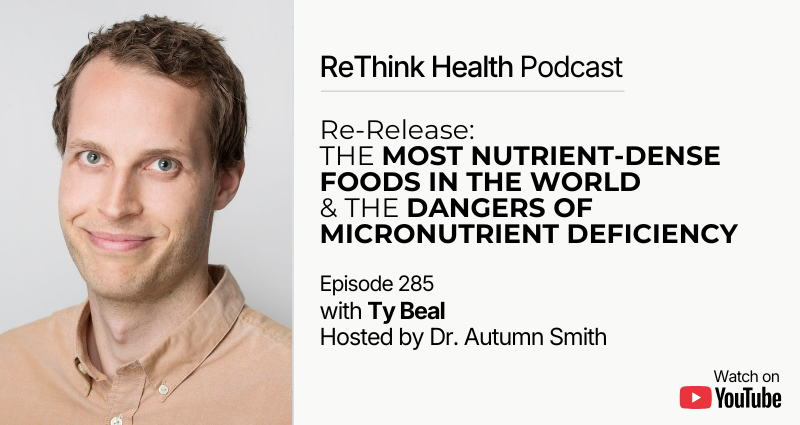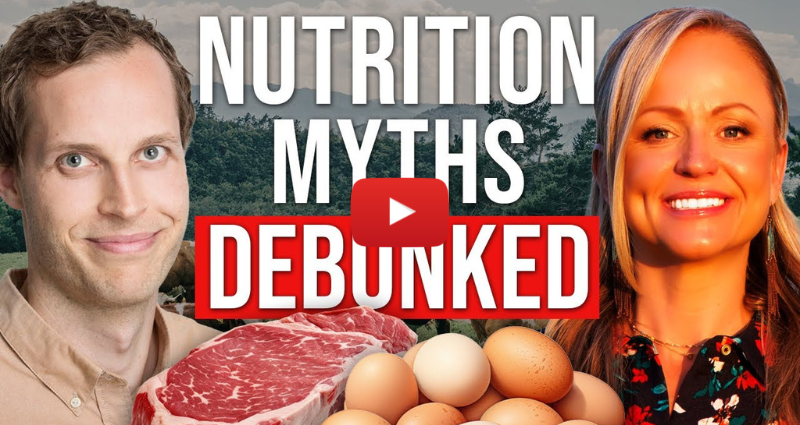
EP285: The Most Nutrient-Dense Foods in the World & The Dangers of Micronutrient Deficiency with Ty Beal
How did Lucky Charms end up scoring “healthier” than eggs on the Tufts Food Compass, and what does that say about modern nutrition advice? If you’ve ever found yourself confused by food nutrient rankings like this, this episode is for you.
In this episode, I sit down with Dr. Ty Beal, a global nutrition researcher known for bringing real nuance to the most polarizing food debates (animal foods, ultra-processed foods, vegetable oils, saturated fat… yes, all of it!).
Ty breaks down what nutrient density actually means, why micronutrient deficiencies are far more common than most people realize (even in high-income countries), and why we can’t “fortify our way” out of poor diet quality.
He also explains the thinking behind his global nutrient-density rating system, built around the nutrients people are most likely to be missing, and adjusted for bioavailability.
You’ll learn:
- Why “quick energy” foods can look healthy on paper… while leaving your body undernourished
- The surprising prevalence of micronutrient deficiencies—and why they matter for energy, cognition, and long-term health
- What most nutrient-rating systems miss (and why ultra-processed foods can score absurdly high)
- The top nutrient-dense foods to keep stocked in your kitchen
- Why the food matrix matters, and why fortified nutrients aren’t equivalent to nutrients in whole foods
- Ty’s balanced take on saturated fat, red meat, and the often-unspoken truth about nutrition science
- A practical look at what Ty actually eats to optimize nutrient density (without being dogmatic)
If you’re tired of black-and-white nutrition advice and want a smarter, more grounded way to think about food quality, this episode will help you cut through the noise and focus on what actually supports long-term health.
Watch the full conversation on YouTube.
Prefer audio? Listen below or on Spotify & Apple iTunes Podcasts.
Helfpul Resources
Paleovalley Organ Complex
>>> Support real nutrient density with up to 20% OFF Paleovalley Organ Complex, a whole-food way to fill common micronutrient gaps and feel more energized every day.
About Ty Beal
Ty Beal, PhD, is a nutrition scientist, global health advisor, and host of The Ty Beal Show, known for bringing clarity to complex and controversial nutrition topics. With more than 60 peer-reviewed publications and advisory roles with WHO, UNICEF, and the U.S. Dietary Guidelines for Americans, his work helps shape evidence-based nutrition policy and practical solutions worldwide.
Thanks so much for spending time with us this week! Have a question or feedback? Email us at [email protected]—we would genuinely love to hear from you.
For more in depth conversations and practical guidance, be sure to subscribe to Dr. Autumn Smith’s YouTube channel, where new videos drop regularly to help you rethink health and nutrition in a clear, manageble way.
You can also follow the ReThink Health Podcast on Spotify or iTunes so new episodes are easy to find and listen to whenever it works for you. Subscribing and following makes a real difference and helps this information reach more people. Thanks again for being here. We will see you next time!









